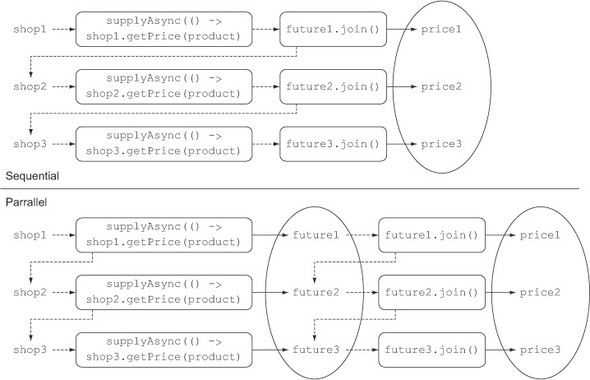JAVA8-default、static
default方法
1.8之前出现的问题:开发了一个接口,后面实现该接口的实现类,都需要实现接口中定义的方法。1.8之后接口中使用default定义新增的方法后,其实现类可以不用实现该方法。
例如Collection接口中新增了对stream的操作方法:stream()
public interface Collection<E> extends Iterable<E> {
default Stream<E> stream() {
return StreamSupport.stream(spliterator(), false);
}
}其实现类就可以不用再实现stream()方法,这样对于版本兼容就比较好了。
static 定义的方法
可以通过接口直接调用该方法,例如:
public interface Function<T, R> {
static <T> Function<T, T> identity() {
return t -> t;
}
}注意:接口中有default定义的方法实现了,但并不是抽象类。
接口:可以被多个类实现。
抽象类:继承了一个抽象类,就不能再继承另一个抽象类,因为类是单继承。
实列
自己用default实现一个接口
package com.example.study.java8.method;
/**
* default使用
*/
public class DefaultAction {
public static void main(String[] args) {
A a = ()->10;
System.out.println(a.size());
System.out.println(a.isEmpty());
}
public interface A{
int size();
//判断容器是否为空
default boolean isEmpty(){
return size()==0;
}
}
}输出结果:
10
false问题思考:当接口中定义default方法后,被多个类实现会不会出现冲突?
问题思考,代码示例:
package com.example.study.java8.method;
public class DefaultActon2 {
public void confuse(Object obj){
System.out.println("Object");
}
public void confuse(int[] i){
System.out.println("int[]");
}
public static void main(String[] args) {
DefaultActon2 action = new DefaultActon2();
action.confuse(null);
int [] arr = null;
Object obj = arr;
action.confuse(obj);
}
}输出结果:
int[]
Object思考:为什么传null,就是调用的int[]数组的方法,而下面的数组指向Object后,调用的时第一个object方法?
因为当传null的时候,会调用声明更具体的方法,如上面的int[] i,明确定义了是一个int数组,而Object不是特别具体。
Default方法解决多重继承冲突的三大原则
1、类的优先级最高
2、上一级接口,不管上一级接口有多少个类
3、如果混淆了,就必须重写。
类的优先级最高,示例:
package com.example.study.java8.method;
/**
* 1、类的优先级最高
* 2、上一级接口,不管上一级接口有多少个类
*/
public class DefaultAction3 {
public static void main(String[] args) {
A c = new C();
c.hello();
}
public interface A{
default void hello(){
System.out.println("A-Hello");
}
}
public interface B extends A{
@Override
default void hello(){
System.out.println("B-Hello");
}
}
public static class C implements B , A{
@Override
public void hello() {
System.out.println("C-Hello");
}
}
}输出结果:
C-Hello混淆了,就必须重写,示例:
package com.example.study.java8.method;
/**
* 1、类的优先级最高
* 2、上一级接口,不管上一级接口有多少个类
* 3、如果混淆了,就必须重写
*/
public class DefaultAction4 {
public static void main(String[] args) {
A c = new C();
c.hello();
}
public interface A{
default void hello(){
System.out.println("A-Hello");
}
}
public interface B {
default void hello(){
System.out.println("B-Hello");
}
}
public static class C implements B , A{
// @Override
// public void hello() {
// System.out.println("C-Hello");
// }
}
}类C如果不重写会报错。必须重写C中hello方法。






评论 (0)